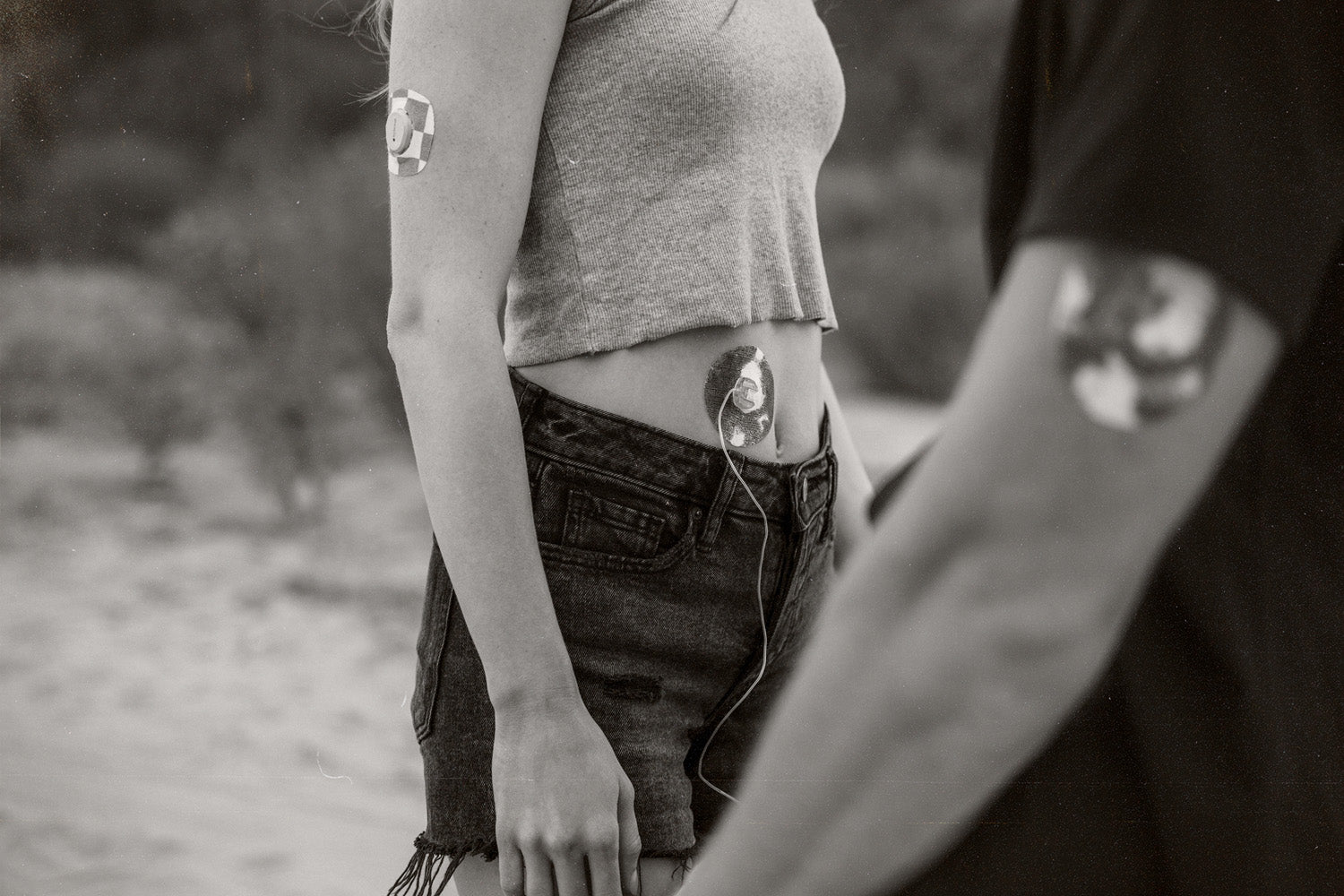*Disclaimer: All content and information in this blog is for informational and educational purposes only. This article was medically reviewed by Amanda Ciprich, MS, RD. Last updated on 7/29/2024

Imagine this: You’ve just inserted a Freestyle Libre 2 Plus sensor, excited to see how it simplifies your diabetes management with Tandem t:slim X2 insulin pump with Control IQ. You’re ready to cruise through the day with your diabetes management on autopilot. But as you go about your day, you get that sneaking feeling we’ve all felt before: should I trust what my meter is telling me or the way I feel?
Instead of the usual sigh of relief from a quick glance at your glucose readings, you’re left with this familiar head-scratcher - is my sensor just being dramatic or if something else is going on?
What is considered an accurate glucose reading?
In the wild world of CGMs, an accurate glucose reading should be within +/-20% of the corresponding blood glucose reading or fall within a specific glucose range. So, if your numbers aren’t quite matching up, don’t panic just yet!
Why is my Freestyle Libre 2 Plus giving me inaccurate readings?
Even though the Freestyle Libre 2 Plus comes factory calibrated (meaning you can’t input your own glucose readings to help the sensor out), there are steps you can take to understand why your sensor might be off before you lose your very hard-earned cool.
1. New Sensor
Think of your Freestyle Libre 2 Plus sensor like a new pair of shoes. It might need a few days to break in! Clinical trials show that accuracy can improve from 10% MARD (mean absolute relative difference) during the first 1-3 days to 7.8% by days 13-15. If you just inserted a new sensor, give it a few days to break in!
2. Sensor Lag
Sometimes your sensor needs a moment to catch up with the rollercoaster of your glucose levels, especially after a big meal, workout, or insulin dose. It might lag a bit, but it just needs a moment to stabilize. Give it some time and it should sync up once your glucose levels chill out.
2. Sensor Placement
Sensor placement is way more than a minor technical detail. For your Freestyle Libre 2 Plus sensor, the back of the upper arm is recommended for accurate readings with minimal wear and tear. Using other sensor spots may set you up for frustration with incorrect readings and the hassle of constant replacements.
3. Device Issues
Even the best sensors have their off days. A bloody insertion or a sneaky dislodged sensor can totally throw your readings out of whack. If your data’s looking a bit funky, it’s time for a quick check at your sensor site.
4. Hydration Levels
Dehydration can mess with your glucose readings by making glucose in your interstitial fluid more concentrated and unreliable. Stay hydrated to keep your glucose readings flowing smoothly.
5. Compression
If you find yourself laying on your sensor when sleeping, don’t be surprised if your readings get wonky. Compression can skew your readings because the sensor isn’t able to get a good measurement of your glucose levels. Give your sensor some breathing room and let it do its thing without any extra pressure.
Summary
If your Freestyle Libre 2 Plus sensor is still playing hard to get after you’ve tried all the tricks above, it's time to contact Freestyle Libre customer service. And in the meantime, keep doing fingersticks if your symptoms and readings are still not matching up. Trust that your tech will come around and you’ll be back to cruising smoothly in no time!
Resources:
https://www.freestyle.abbott/us-en/products/freestyle-libre-2-plus-sensor.htm
https://www.accessdata.fda.gov/scripts/cdrh/cfdocs/cfcfr/cfrsearch.cfm?fr=862.1355
https://freestyleserver.com/Payloads/IFU/2023/q3/ART48230-001_rev-A-web.pdf
About Amanda Ciprich, MS, RD
Amanda Ciprich, a registered dietitian with a specialization in type 1 diabetes, was diagnosed with T1D herself at the age of 18. With her expertise and personal experience, she has authored two books, including "The Caregiver's Guide to Diabetes: Practical Advice for Caring for Your Loved One." As the founder of T1D Nutritionist, a virtual insurance-based private practice, Amanda provides counseling and guidance to individuals with T1D and their families, supporting them in effectively managing diabetes.
































